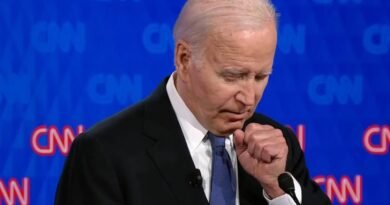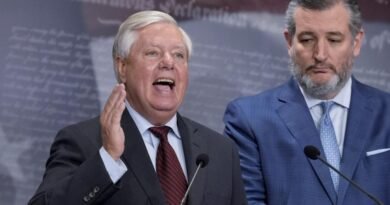Congress Must Honor Its Commitment to the Illustrious Heroes of 9/11

On September 11, 2001, the United States faced an unprecedented attack, resulting in nearly 3,000 casualties.
Many anticipated that this somber figure would only increase over time.
Approximately 400,000 individuals were exposed to the hazardous air surrounding Ground Zero, leading to subsequent health issues and loss of life.
This is the reason we, alongside New York Representatives Carolyn Maloney and Jerrold Nadler, drafted the James Zadroga 9/11 Health and Compensation Act of 2010, commonly referred to as the 9/11 Act.
The legislation established the World Trade Center Health Program, which continues to offer testing and treatment to first responders and survivors suffering from illnesses linked to their exposure to toxic substances.
Each year, on September 11, we gather to pledge that we will never forget.
Yet it appears some in Washington have forgotten.
Since the program’s initiation, over 135,000 first responders and survivors have enrolled.
Of these, nearly 84,000 have experienced at least one 9/11-related illness—28 times the number of casualties that occurred on that day.
While not all enrollees require treatment, thousands do.
The program has effectively assisted those who have fallen ill in receiving care and in monitoring the health of first responders and others who were exposed.
The future of this program must never be uncertain—but it currently is.
Following years of advocacy, Congress reauthorized the WTC Health Program through 2090, ensuring support throughout the lifetimes of those affected by these toxins.
However, tragically, an alarming number of first responders and survivors are increasingly falling ill, escalating the need for more funding.
Due to this surge in demand, program managers anticipate a $3 billion funding shortfall over the next decade, starting in 2028.
If additional funding is not allocated, the program will have to initiate cutbacks as early as 2027.
This means that beginning in 2027, responders and survivors who fall ill will be barred from enrolling in the program.
Subsequent reductions in services for those currently undergoing treatment, many battling cancer, will follow shortly thereafter.
In essence, without additional funding, the program will be unable to uphold its promise to survivors.
During last month’s year-end budget negotiations, Congress eliminated a provision designed to prevent this situation.
This bipartisan measure would have proactively updated the funding formula to guarantee that the World Trade Center Health Program never reached a deficit.
We anticipated, when we first drafted the 9/11 Act, that there might be a time when some in Congress would view other priorities as more pressing.
Despite the clear necessity to assist the victims of 9/11, some legislators have consistently opposed the program — jeopardizing its capability to aid those who may become sick in the future.
9/11 represented the last genuine act of war on American soil.
Just as we honor warriors who perish in battle, we are obligated to fulfill our responsibilities to all casualties of this war — whether they be the first responder present at Ground Zero or the civilian who happened to be nearby.
We recognize that President Trump supports these brave individuals.
The next step is decisive action from Congress.
When the new Congress convenes on Friday, Representatives Nicole Malliotakis and Andrew Garbarino in the House, along with Senators Kirsten Gillibrand and Charles Schumer in the Senate, will advocate for funding for the 9/11 Act.
We hope that one of the first actions of this Congress will be to restore the 9/11 Act in the budget once and for all.
We all pledge to “Never Forget” 9/11.
It is one thing to proclaim it, another to genuinely believe it… and yet another to honor that commitment.
Vito Fossella is Staten Island Borough President. Peter King represented New York in the House of Representatives.



